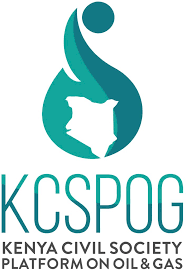Update on the Petroleum Bill, 2017 (August 2018)
The passage of the Constitution of Kenya, 2010 ushered in a new era of natural resource governance and management in Kenya. Hydrocarbons, Crude Oil in our case, which had previously been the property of the state, are now the property of the people of Kenya (managed for them by the State). To effect the Constitutional change relating to natural resources, the National Assembly in 2013 first introduced the Petroleum Bill. The Petroleum Bill, 2013 sought to repeal the Petroleum (Exploration and Production) Act which commenced in 1984. Since 2013 there have been four legislative attempts at obtaining a new Oil & Gas legal regime in Kenya.
The National Assembly
The latest attempt was in January 2018 when the Petroleum (Exploration, Production & Development) Bill, 2017 (Petroleum (E, P & D) Bill, 2017) was tabled before the National Assembly by the Leader of Majority Hon. Adan Duale. The Departmental Committee on Energy held Public Hearings and accepted Memoranda from the public in March 2018 (KCSPOG Memoranda to the National Assembly). The Bill was later passed by the National Assembly in July 2018 and proceeded to the Senate in August 2018.
The Petroleum Bill was delayed as negotiations were ongoing between the President and the Turkana leadership through the Governor on the issue of revenue allocation. These negotiations were deemed critical as the previous Petroleum Bill of 2015 was not assented to due to a misunderstanding on revenue sharing- to avoid a repeat of the same the Executive and Legislature chose to negotiate prior to the passage of the Petroleum (E, P &D), Bill, 2017.
On 19th May 2018, an agreement was reached where the National Government would take 75% of the Revenue while County Government 20% and the Local Community 5%. The agreement removed the previously contentious caps in the 2015 Bill, that would have limited the County and Community allocations based on the amounts received from the national government in the fiscal year.
The National Assembly made the following fundamental changes to the 2017 Petroleum Bill:
- Scope of the Bill: The National Assembly expanded the scope of the Bill to include upstream, midstream and downstream
- Name Change: The Bill was renamed the Petroleum Bill, 2017
- The Regulator: The Upstream Petroleum Regulatory Authority (UPRA) (Established in clause 14 of the Petroleum (E, P & D) Bill, 2017 was abolished. The Energy Bill, 2017 was amended and the Energy and Petroleum Regulatory Authority (Clause 9 of the Energy Bill, 2017 (Senate Version) was created.
- Revenues: The revenue sharing formula was maintained, but the caps on revenue were removed.
The Senate
At the Senate the Petroleum Bill, 2017 proceeded to the committee stage in August 2018 and the Committee on Energy held a public hearing and called for memoranda between 21st and 22nd August 2018. As a stakeholder in the sector, KCSPOG and its partners made submissions on the Bill. Below is a summary of the Platform’s comments to the Senate:
1. Energy and Petroleum Regulatory Authority (EPRA): Energy Bill, 2017 Clause 9- 24)
In the Petroleum Bill, 2017 before the Senate, EPRA is established in the Energy Bill yet it will regulate the Petroleum Sector which is governed by a different law. KCSPOG asked for the splitting of EPRA into two bodies; A petroleum regulator established in the Petroleum law and an Energy Regulator created in the Energy Law. The justification for this is that the Ministry of Energy and the Ministry of Petroleum and Mining are separate ministries; having one regulator would result in the overlapping of the roles of the two Cabinet Secretaries.
2. Production Sharing Contracts (PSCs) (Petroleum Bill, 2017 Clause 31)
In line with Article 71 of the Constitution, the Platform contended that Parliament must ratify Production Sharing Contracts and that the wording of Clause 31 defeated the spirit of the Constitution. Article 71 of the Constitution and the Natural Resources (Classes of Transactions Subject to Ratification) Act, 2016 require the ratification of agreements authorising the extraction of Crude Oil and Natural Gas.
The Platform and its partners proposed that the Petroleum Bill should provide for the ratification of PSCs after negotiation of a PCS between an oil company and the Cabinet Secretary before signing. A Full Field Development Plan (FFD) comes later in the lifecycle of an Oil & Gas project thus waiting to ratify a PSC accompanied by an FFD defeats the purpose of Article 71.
3. Revenues (Petroleum Bill, 2017 Clause 58)
The platform, highlighted that the Senate needed to ensure that the wording of the clause on Sharing of Petroleum Resources clearly reflects that the County Government and Community will receive their share of Petroleum revenues from the Government of Kenya’s share
[and not receive them as a fraction of the National Government’s shareof the total Kenya share]
.
4. Environment (Petroleum Bill, 2017 Clause 22 & 127 (f))
In its submissions, the Platform asked that before granting non-exclusive exploration permits the licensing Authority should require an Environmental Impact Assessment License from the environmental regulator. This will ensure the protection of the environment as a non-exclusive exploration permit allows the holder to carry out activities such as drilling of wells which may potentially affect the environment and neighbouring communities.
The Platform and its partners shall continue to engage in the legislative process and once the Bill becomes an Act shall engage in the formulation of regulations in the Oil and Gas Sector.
For more information visit the following pages:
KCSPOG’s Submissions on the Petroleum Bill, 2017
KCSPOG’s Submissions on the Energy Bill, 2017
